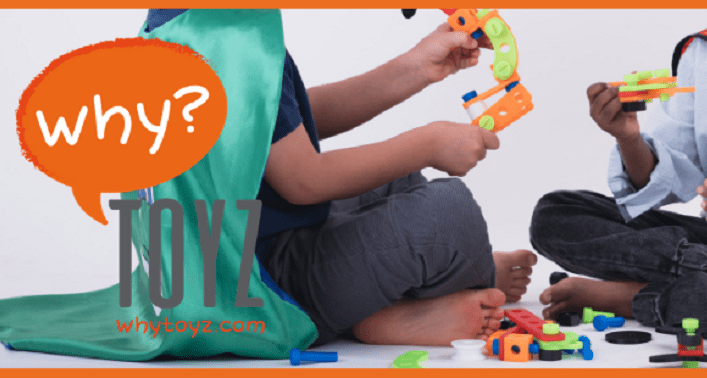South African ed-tech startup Why Toyz is inspiring the creativity of children by utilising 3D printing at the heart of early childhood development.
Founded last July, Why Toyz provides fun, educational content for young kids that can be 3D-printed at home or at school to raise a new generation of creators.
Founder and chief executive officer (CEO) Petra Rees said the startup, which was named winner of the Seedstars event in Johannesburg late last year, wanted to raise creators instead of just consumers – “kids who are prepared for a fundamentally different future where they won’t find jobs but rather need skills like creativity, problem-solving, analytical, critical and innovative thinking”.
“3D printing is an exponential technology that by default offers making and creating and therefore sits at the foundation of Why Toyz, focusing on early childhood development,” she told Disrupt Africa.
“We allow kids to tap into their creativity and really create anything that their minds can conjure. Initially, children have access to dozens of meticulously designed 3D-printed worlds, through our one-touch print mobile application – draw bridge, solar system, lab set, car and marble tracks, farm yard and auction, slingshot aeroplanes, puzzle blocks, funky dinosaurs stencils with maps of ancients worlds and continents and many more. Plus we add one new “world” each month.”
These worlds have been created by child development specialists to enhance key developmental milestones as well as STEM-related concepts, and come with workplans and fun videos. As children, educators and parents grow in sophistication, easy-to-use 3D modelling software and inexpensive 3D scanners can be accessed to load their own designs and worlds onto the platform for their own use or resale.
“It is a profound moment when kids really understand that they can create anything they can think of in their own home or at school,” Rees said. “The Why Toyz platform is 3D printer agnostic and a true multi-sided and multi-tenanted platform, able to protect design IP and enable the 3D printing ecosystem across multiple industry verticals.”
Rees and co-founders Abigail Friedman and Conrad de Wet have been investing in Why Toyz for two years now, but only launched their MVP in July 2019 with a successful 15 customer pilot. It has since launched its school offering, and is already in a number of major AdvTech and Inspired schools, as well as Montessori early learning schools.
“While the home market will evolve as consumers adopt this technology, schools remain a critical target for us. But of course we need to align ourselves with their budget cycles and curriculum. Private schools appear to be open to adoption while a different approach will be required to unlock the mass market through government schools,” Rees said.
While South Africa was an ideal location to invest in the business and develop the platform, it is critical for Why Toyz to open in more developed markets if it is to scale to its real potential. Rees is originally from the Czech Republic, and work is under way to open an office there in the first half of this year.
“This office will service much of Eastern Europe, Germany and the UK through existing distributor and marketing relationships. The ultimate goal will be to launch in the US, as this is the largest market for 3D printing,” said Rees.
“Being an exponential business, it scales quite well into other markets as it is not limited by one printer type and can be white labelled with the multi-tenant functionality.”
While 3D printer technology is only emerging, Why Toyz believes the sector is destined to be massive.
“Much of the investment and revenue has been focused on the hardware side in order to reach commercially viable unit economics, but that point is fast being reached and already here in some cases,” said Rees.
“Why Toyz leverages this megatrend into the education domain, where educational toys and equipment can be printed in homes and schools and new content created and sold. Why Toyz solves for a very real and powerful educational need right now, but is also the foundation for a much more ambitious 3D printing brokerage platform.”
The startup’s revenue comes from monthly subscription to its content platform as well as hardware and other 3D printing accessories sales. For Why Toyz to really reach its potential, however, price points for 3D printers in general will need to come down.
“Everyone is super excited about the solution as they see a tremendous potential and what an incredible impact it can have on a child’s development. However, not everyone understands 3D printing technology as it’s quite new, so market readiness and consumer education is the primary challenge for us at this stage. Since good quality home and school 3D printers are around US$400 price point this obviously limits the market size at this point, particularly in Africa,” said Rees.
“However, as the technology progresses so the price point reduces. We have already seen some amazing printers selling for US$600 a few years ago and now going for US$400. And this will only goes down with demand and technology improvements.”


